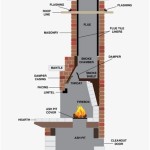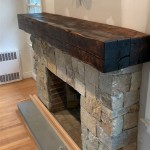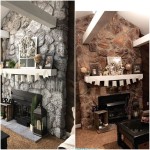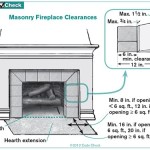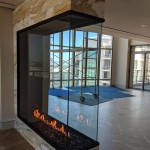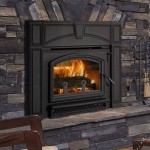Essential Aspects of Fan for Gas Fireplace
Installing a fan for your gas fireplace can significantly improve its functionality and overall performance. Here are some essential aspects to consider when choosing and using a fan:
1. Increased Heat Circulation: A fan effectively distributes the warm air generated by your gas fireplace throughout the room, resulting in more efficient heating. It helps circulate the heat, preventing it from accumulating near the fireplace and creating cold spots in distant areas.
2. Heat Direction Control: Fans allow you to control the direction of the heated air, ensuring it reaches the desired areas. By directing the airflow upwards or downwards, you can optimize the heat distribution according to your specific room layout.
3. Reduced Temperature Stratification: Without a fan, hot air tends to rise and accumulate near the ceiling, creating temperature stratification. A fan helps mix the warm and cooler air, reducing the temperature difference between the floor and ceiling, resulting in a more comfortable indoor environment.
4. Enhanced Fuel Efficiency: By circulating the warm air effectively, a fan enables your gas fireplace to operate at a lower temperature while maintaining the desired warmth. This can lead to reduced fuel consumption and increased energy savings.
5. Room Ventilation: Some fans also incorporate ventilation features that help circulate air and reduce moisture buildup within the room. This can help prevent condensation on windows and improve air quality.
6. Quiet Operation: Modern fan systems are designed to operate quietly, ensuring they do not interfere with conversations or other activities. Choose a fan with noise levels that suit your preference and the ambience of your room.
7. Compatibility and Safety: Ensure that the fan you select is compatible with your specific gas fireplace model. Additionally, look for fans that meet recognized safety standards and have built-in safety features, such as thermal overload protection.
8. Aesthetics and Design: Consider the visual appeal of the fan and how it complements the design of your fireplace and room. Choose a fan that matches the style and color of your fireplace and enhances the overall aesthetics.
9. Energy Efficiency: Look for fans with high energy efficiency ratings to minimize operating costs. Energy-efficient fans consume less electricity, reducing your energy consumption and saving money on utility bills.
10. Installation and Maintenance: The installation and maintenance of a fan for a gas fireplace should be handled by a qualified professional. Ensure that the fan is installed securely and properly maintained to ensure optimal performance and safety.
By considering these essential aspects, you can choose and utilize a fan for your gas fireplace that effectively improves its heating performance, increases energy efficiency, and enhances the overall comfort and ambience of your indoor space.

Noisy Gas Fireplace Blower Here S How To Replace It Diy

Fireplace Efficiency Blowers And Why You Should Have One

Installing A Fireplace Blower Gfk4 Gfk4a In Heatilator Natural Gas

How To Buy A Gas Fireplace Insert Buyer S Guide From Regency

Do Gas Fireplaces Need A Blower Fireplace Tips

Gfk 4 Temperature Controlled 165 Cfm Fireplace Blower Fan Kit With Sd Control Knob

The Valor Comfort Zone Gas Fireplaces

How To Choose And Install A Gas Fireplace Blower Kit

Ghopy 5 Blade Stove Fan Heat Powered Fireplace Quiet Circulating Warm Air Saving Fuel For Wood Log Burner Gas Pellet Burning Black Com

Gz550 Fireplace Blower For Continental Napoleon Fireplaces 1kt
Related Posts


